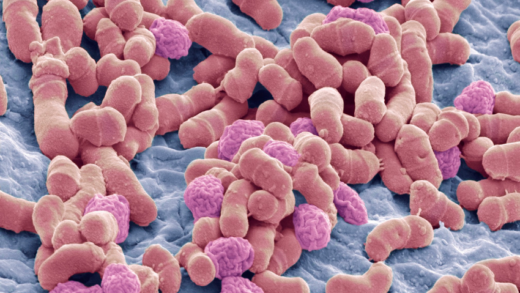Have you ever felt the irresistible urge to indulge in a particular food, even if you weren’t particularly hungry? That’s what we call a craving. Cravings are a common experience, and most people encounter them regularly. However, the underlying reasons for these cravings remain somewhat of a mystery to many. In this article, we will delve into the science behind why we have cravings and explore some ways to manage them.
Why We Have Cravings
Cravings are a biological response that is hardwired into our brains. Our bodies crave certain nutrients that we may not be getting enough of or that we need to function correctly. For instance, when our bodies need energy, we may crave carbohydrates. When our bodies need protein, we may crave meat or dairy products. Similarly, when we need vitamins or minerals, our body may trigger cravings for specific foods that contain those nutrients.

Factors That Trigger Cravings
While our bodies have a natural mechanism that triggers cravings, there are other external factors that can cause them. Here are some of the primary triggers:
- Emotional triggers: Many people turn to food as a way of coping with stress, anxiety, or other negative emotions. When we’re feeling down, we may crave comfort foods that make us feel better temporarily.
- Social triggers: Social events, such as parties, can trigger cravings for certain foods that we associate with those events. For example, we may crave pizza during a game night with friends or ice cream during a family barbecue.
- Environmental triggers: Our environment can also trigger them. For example, seeing a fast-food restaurant or smelling freshly baked cookies can make us crave those foods, even if we weren’t initially hungry.

Managing Cravings
While cravings can be challenging to resist, there are ways to manage them effectively. Here are some tips for managing them:
- Identify triggers: Keeping a food diary can help you identify your triggers. Once you know what causes your cravings, you can take steps to avoid those triggers or find healthier ways to cope with them.
- Plan your meals: Planning your meals in advance can help you avoid making unhealthy food choices when they strike. When you have healthy food options readily available, you’re less likely to give in to your cravings.
- Distract yourself: When you feel a craving coming on, try to distract yourself with an activity you enjoy, such as reading a book or going for a walk. Engaging in a pleasant activity can help take your mind off the craving and reduce its intensity.
- Indulge in moderation: Sometimes it’s okay to indulge in your cravings, but do so in moderation. Enjoy a small serving of the food you’re craving rather than going overboard.
Frequently Asked Questions
Are cravings always a bad thing?
No, not necessarily. Cravings can be a sign that our bodies need specific nutrients or can be a way of satisfying our emotional needs. However, it’s important to manage them to avoid overindulging in unhealthy foods.
Can dehydration cause cravings?
Yes, dehydration can sometimes trigger them. When we’re dehydrated, our bodies may crave sugary or salty foods, which can worsen dehydration. Drinking plenty of water can help alleviate cravings caused by dehydration.
Can stress cause cravings?
Yes, stress can trigger it for comfort foods that temporarily alleviate stress. Finding healthy ways to manage stress, such as exercise or meditation, can help reduce cravings caused by stress.
Why do women experience more cravings than men?
Hormonal fluctuations, such as those during menstruation, pregnancy, or menopause, can cause women to experience more intense and frequent cravings than men. Additionally, cultural factors and social conditioning may also play a role.
Can lack of sleep cause cravings?
Yes, sleep deprivation can cause hormonal imbalances that can trigger cravings for sugary or high-carbohydrate foods. Getting enough restful sleep can help regulate hormones and reduce cravings.
Conclusion
Cravings are a natural and often unavoidable part of our lives. Understanding the science behind them and the triggers that cause them can help us manage them more effectively. By identifying our triggers, planning our meals, and finding healthy ways to cope with stress and other negative emotions, we can reduce the intensity and frequency of our cravings. Remember, it’s okay to indulge in moderation, but it’s crucial to maintain a balanced and healthy diet to support our overall health and wellbeing.






















